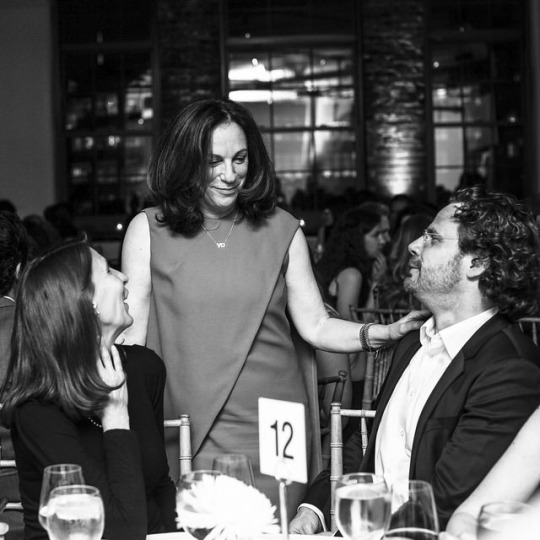CREATIVE CAREERS: HOW TO GET A JOB IN DEVELOPMENT
“Development teams are always looking for dynamic individuals with a commitment to the arts.”
Whether you’re an artist or a recent arts administration graduate, learning more about the field of development can lead to a rewarding career. The fundamentals of development, relationship-building, and fundraising are skills that will be transferable and valuable to any position in the nonprofit world. Development can involve a variety of fundraising projects and engagement initiatives at arts councils, festivals, theaters, galleries, and museums. You can even start your own art space. The possibilities are truly limitless when it comes to raising money! Together we’ll explore the basics of development and share tips on how to enter the specialization successfully.
Education
To pursue a career in development, you must combine your passion for the arts with business know-how. There are several different approaches to learn more about the sector. You may pursue a graduate degree in arts administration or nonprofit management program. Attending an educational program can provide you with valuable professional opportunities, along with a well-established network of peers. Popular degree programs include American University’s Master in Arts Management and NYU’s Nonprofit Management and Policy program. You may also invest significant time in professional development programs at institutions like the Foundation Center or Support Center.
Here are some of the primary skills needed:
- Grantwriting and fundraising
- Public speaking
- Data analysis
- Nonprofit governance including management of staff, volunteers, and board members
- Community resource development
- Marketing
- Financial accounting and management
The Foundation Center is an invaluable resource for developing your fundraising capability. The center operates libraries and learning centers in five locations – New York City; Washington, DC; Atlanta; Cleveland; and San Francisco – that offer free access to information resources and educational programs. Individuals can participate in training workshops nationwide that explore topics like, Introduction to Proposal Writing to From Statistics to Storytelling: An Introduction to Census Bureau Data.
Fundraising as Storytelling
Jessica Lynne, Development Manager at 651 Arts, is always expanding her skill set in development and increasing her knowledge as a grantmaker. She says:
“As a writer, I consider development work to be an act of storytelling. What is the best story to tell in order to encourage a community of stakeholders to invest in your mission? As I continue to learn more about the field, I try to cling to this fact as tightly as possible. Because the reality is development work is unglamorous. You’re often the last one in the office working on a grant or wrapping up an appeal or relentlessly trying to schedule a meeting with that elected official whose calendar never seems to open up. Yet, in my role as a storyteller, I have the opportunity to advocate for dynamic art and artists that matter in this world”.
Key Areas in Development
The primary goal of a development team is discovering methods to identify, cultivate and maintain funder and individual donors to the organization. As a development manager, you focus exclusively on fundraising efforts, including those related to individuals, corporations, foundations, and government agencies. It helps to have broad familiarity with the following areas:
- Gifts solicitation
- Corporate solicitation
- Grant writing for governmental entities and private foundations
- Creation of an annual development plan
- Fundraising events
- Donor cultivation events
- Capital campaigns
- Volunteer management
An ability to advocate strongly on behalf of the administration is vital. Development staff tend to work closely with the executive director to engage the board of directors, both in their personal giving and in their roles as fundraisers for the institution. The type of work a development manager focuses on differs greatly between organizations depending on the size and services provided. The core knowledge areas are:
Individual Giving: Plan, direct, and implement an individual giving program with the goal of growing an organization’s donor base and increasing the number of major gifts each year. It’s vital that research is done to develop and maintain ongoing relationships with key donors and identify new prospects.
Institutional Giving: Lead the writing and submission of grants and reports, at times in collaboration with the Executive Director. Development staff research new sources of foundation and corporate funding, along with tracking and acknowledging all grants and donations.
Board Relations: Collaborate with the Executive Director to develop and implement strategies that engage the board and motivate them to develop donors and advocates for the organization. The development manager may serve as another staff liaison to the board, ensuring they are up-to-date on programming activities and reporting on fundraising needs.
Grant proposals: Primarily responsible for developing and writing grant proposals to foundations and other grant-making entities, and will persuasively communicate the overall mission to potential funders. Submit grant requests, establish and maintain relationships with foundation contacts, conduct prospect research, and maintain a calendar of submissions and other deadlines.
Special Events: Guide and manage key special event programs including corporate gifts and sponsorship support. Manage benefit, gala and donor cultivation events. Continually search for new sponsorships that increase visibility and community awareness.
Those most successful professionals in the field embrace meeting new people and enjoy working collaboratively. You should also be as comfortable following-up proactively and appropriately with foundations and donors. Deadlines and attention to detail in all communications are crucial to the world of development.
Internships, entry level positions & volunteering
Internships and/or entry level jobs are something everyone has to experience. They allow you to test out the field in a practical way, get your foot in the door of an organization you admire, and make connections in the field. In addition, you can gain hands-on training and see how your personality fits the internal culture. For those contemplating how to gain experience in development, look for opportunities in audience engagement, member services and/or customer service.
Internships in development and fundraising can range depending on the organization. The Lower Manhattan Cultural Council offers a robust internship program where individuals are paired with staff members to concentrate on specific track, like public programs, community initiatives or institutional giving. There is a strong emphasis on collaborative learning and creating meaningful exchanges with participants.
The Metropolitan Opera and The Brooklyn Museum often hire part-time associates to support their telefundraising campaigns. These positions are flexible and vary season to season. The primary responsibilities include conducting outbound calls to patrons and prospective donors to raise funds for the venue. Each phone call and member interaction supports specific departmental fundraising goals. In this role, individuals learn strong communication skills, database management and strengthen their ability to build positive relationships with many different types of people in the arts community.
We also recommend that you try volunteering for special events like galas and cultivation events. For example, volunteers may serve on gala committees, help the day of the event with set-up or support a silent auction. Simply volunteering for one benefit dinner can provide you with a new perspective!
The Size of the Institution
Development and fundraising goals vary due to the size and capacity of an cultural organization. As a member of a development team you may provide administrative support, write grant proposals, or even advise board members on annual contributions.
A small to mid-level organization may depend on 1-2 key staff members to manage all aspects of fundraising, which may include recruiting volunteers, planning special events, organizing corporate campaigns, writing grants and soliciting funds. It’s a tremendous amount of work for a small yet dedicated staff. You must be passionate and invested in the work to “get it done”! At 651 Arts, the tight-knit team forms incredibly close relationships with their artists.
“We are deliberate about making ourselves available to them as they navigating the funding landscape – from initial idea to revision to submission. In some cases, we also provide fiscal sponsorship for artists applying for funding that requires applicants to have 501©3 status.”
A large organization with extensive philanthropy needs is more likely to have specialized fundraising positions. Some organizations with over 100 employees have a development team whose sole responsibility is to research fundraising opportunities and submit grant applications while another department manages special event fundraising activities. Specialized fundraising professionals may also be hired on an individual basis to solicit funds from private parties and corporations.
Overall, through internships, entry-level positions, and volunteering, you gain exposure to the many forms of fundraising: grants from private foundations, individual donors, special events and corporate sponsorships. The kind of fundraising job that is right for you will really depend on whether you enjoy becoming an expert on one aspect of fundraising, or if you’d prefer being involved every aspect of the process!
Development teams are always looking for dynamic individuals with a commitment to the arts. You’ll play a key role in advancing the arts and most importantly, increasing much needed funding! Check out the latest development opportunities on NYFA Classifieds:
Two River Theater
Red Bank, NJ
Wallis Annenberg Center for the Performing Arts
Beverly Hills, CA
Brooklyn Museum
Brooklyn, NY
Brooklyn Museum
Brooklyn, NY
Manhattan Renovations
New York, NY
Mattress Factory Museum
Pittsburgh, PA
Manager of Program Development
Staten Island Children’s Museum
Staten Island, NY
The Aldrich Contemporary Art Museum
Ridgefield, CT
To find more development jobs, visit NYFA Classifieds.
Let us know what careers you’d like to learn more about by visiting us on Twitter: @nyfacurrent and using the hashtag #NYFACreativeCareers
– Glory Edim, Program Associate, Online Resources
Image: Billy Farrell Agency, Photo of Artist Deborah Kass, NYFA Hall of Fame Inductee 2014





